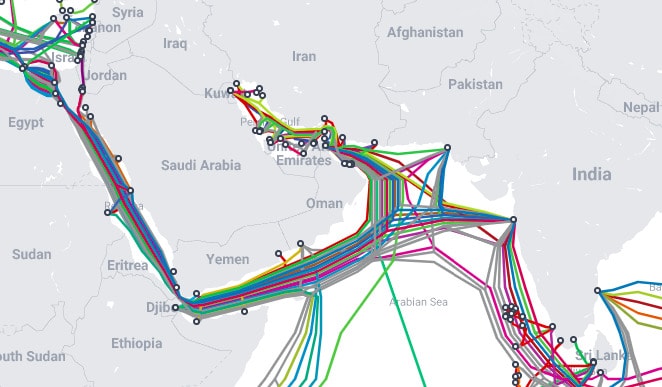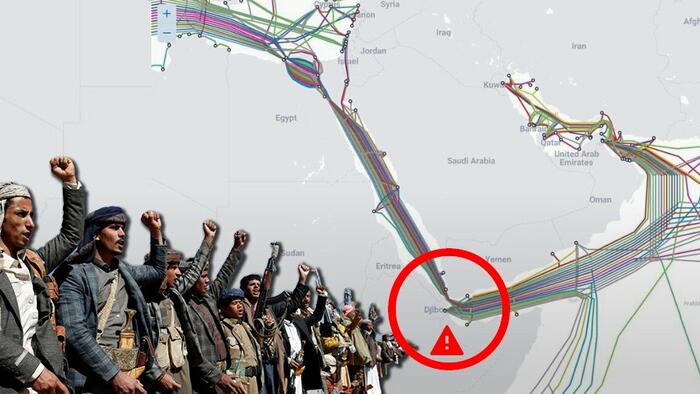Sea News – Analysis — With the continuation of unprecedented crimes by the Zionist regime against the people of Gaza, Yemen’s Houthi resistance movement is likely to take extensive measures against vital regional infrastructure, particularly the submarine cable networks in the Red Sea, in response to these massacres.
The Red Sea region is one of the world’s key data transport routes, hosting several important submarine cables including Google’s Blue-Raman, Bharti Airtel’s 2 Africa, Sea-Me-We 6, and Reliance Jio’s India-Europe-Express. These cables facilitate internet and data communications between Asia, the Middle East, Europe, and Africa, carrying a significant portion of global data traffic.
If the Houthis target these cables, it would lead to widespread consequences. Primarily, severe and extensive disruptions in regional and international internet connectivity would occur, affecting Middle Eastern countries, Europe, India, and the illegitimate Zionist regime, all of which heavily depend on this route.
Furthermore, the military and intelligence infrastructure of the Zionist regime—which relies on fast and secure data communications—would suffer damage. Any disruption to these cables could cripple or severely slow down military operations, security systems, and crisis management of this regime.
Moreover, internet connectivity is critical for Israel’s banking and economic systems, and any internet outage could cause substantial economic losses. Additionally, security and repair costs for the cables in this region would significantly rise, as threats and instability complicate the situation.
From a strategic perspective, disruption in communication routes would reduce Israel’s ability to manage crises and respond swiftly to emergencies. This would enable the resistance forces to exert greater pressure on the Zionist regime and weaken its strategic position.


